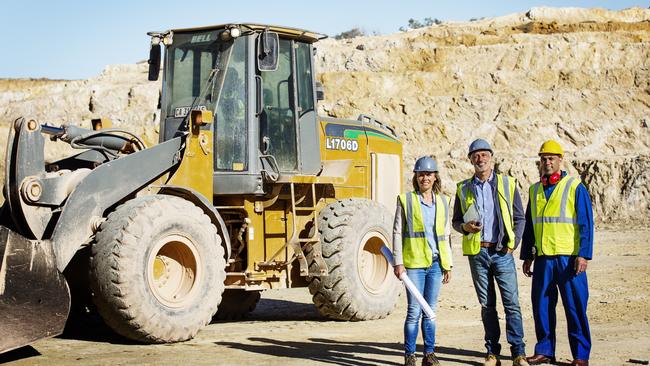
The most valuable resource in our era has been oil. The rise of the internal combustion engine created such demand for oil that denial of supply has been cause for war. And yet, as with other valuable resources in human history, there comes a time when new thinking prompts a scramble for something different. Some say lithium, essential for batteries, is the resource to watch. Others reckon gold will always be king, because it’s a “safe haven” investment and a vital component in electronics.
And yet of all the resources likely to be fought over in the 21st century, the most precious (in my opinion) will be something that isn’t mined or drilled. This century’s most hotly contested resource will surely be skilled labour in the form of young workers willing to relocate to work in another country.
The demand driver for immigrant workers is twofold: an ageing workforce, and declining birthrates throughout the developed world. It will especially play out over the next 20 years as Baby Boomers enjoy a long retirement requiring financial support, healthcare and other services, all largely funded by the taxation of younger workers.
The logic in Australia has long been that more workers equals more labour gaps filled equals more tax paid. Modern Australia was built upon a culture of immigration; over the years we’ve been such a popular destination for immigrant workers that we’ve had to impose limits (or caps) across different categories, which rise and fall depending on market conditions and other circumstances.
This background has led to a policy framework that assumes immigrants will almost always choose Australia over other destinations. But the megatrends depleting labour pools here are also present in the US, Canada, New Zealand and the UK. Falling birth rates for 40 years have eroded the youth end of the workforce across the Anglosphere. Popular thinking in Australia is that the current skills shortage was caused by closed borders for two years, and it follows that with borders open it’s only a matter of time before labour pools refill to normal levels. But that thinking is flawed.
Welcome to a world in which we must compete with other nations that are equally determined to entice young skilled workers looking to emigrate. Some workers may soon be able to command a kind of premium – paid inducements, say, or help with housing – from countries competing for them. We’re talking about graduates in IT or medicine, in civil engineering, or perhaps electricians or welders or chefs. A young skilled worker who is likely to work and pay tax for 30-plus years would no doubt attract a premium, with an added bonus for English language skills.
The alternative to competing with other nations for skilled labour is to rely on a local labour pool that has been diminished by decades of reduced fertility. Healthcare, for example, isn’t the kind of job that can be easily digitised or automated. Without intervention, we will be forced to reduce services to the community, and specifically to retirees. This will especially upset Boomers in retirement, who will argue that they paid taxes all their working lives in fair expectation of a certain level of services in retirement, and that to diminish the draw-down side of the deal is a breach of social contract.
For Australia to flourish in the 21st century, we must identify the skills we need for a rapidly changing world, and attract those workers (and taxpayers) to Australia. This is why I say young skilled immigrant labour is this century’s new most valuable resource.



